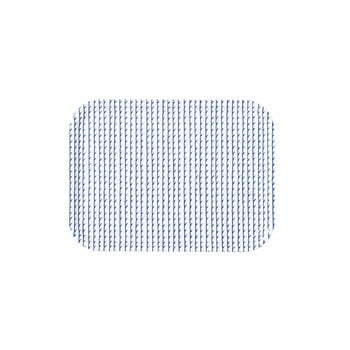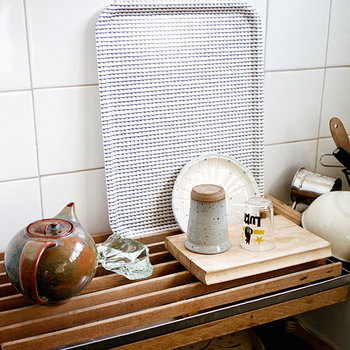The Rivi tray, designed by Ronan and Erwan Bouroullec for Artek, features a unique textile pattern that comprises rows of long, parallel lines with delicate details. The rectangular tray is made of laminated plywood and paper.
The appeal of Rivi, Finnish for "line", lies in the hand-drawn lines – Artek has a long tradition in crafting furniture from wood and perceives organic irregularity as a virtue rather than as a flaw. The Rivi home collection includes fabrics, cushion covers, trays, pouches and bags in a range of Nordic colours.







